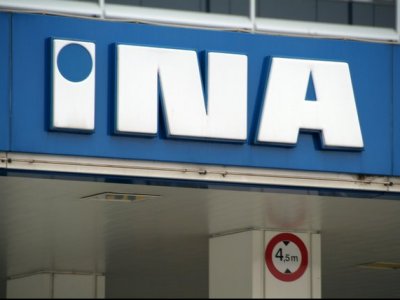
Hungarian MOL Harassed In EU Entrant Croatia
Publication: Eurasia Daily Monitor Volume: 8 Issue: 127
By:

Within days after the European Commission had cleared Croatia to join the EU (Financial Times, June 22), political harassment of Hungarian MOL has intensified in Croatia. Russian interests are conveniently using local allies to wrest operational control of INA, the Croatian oil and gas company, from MOL. The Hungarian company is the leading shareholder in INA; and Croatia is key to MOL’s region-wide strategy for supply diversification and interconnectivity, in line with EU goals to reduce Central Europe’s dependence on Russian supplies.
Russia opposes the development of an energy transit corridor from Croatia’s Adriatic coast into landlocked Central Europe. Moscow therefore seeks to undermine MOL’s position in Croatia, frustrate EU policy goals, and open the way for Russian energy companies to expand into this country. Russian interests take advantage of the Croatian government’s non-strategic, ad hoc policies in the energy sector. Moscow has twice targeted MOL for hostile takeovers (once by proxy and once directly), unsuccessfully. Following the second failure has stepped up in Croatia.
On June 21-22, Croatian media publicized leaks from an ongoing investigation by Croatia’s State Prosecutor Office and the Anti-Corruption Bureau. According to unnamed sources in those agencies, MOL chairman Zsolt Hernadi had paid 10 million Euros to Ivo Sanader, Croatian Prime Minister in 2008-2009, for revising the INA company’s shareholders’ agreement in MOL’s favor (Vecernji List, Poslovni Dnevnik, Jutarnji List, Vjesnik, June 21-30).
Croatian media are citing these unsubstantiated bribery allegations continuously since June 21. Sanader, who left the country in 2009, is a target of separate investigations by Croatian authorities. The new, unprecedented development is the personal attack against the internationally respected Hernadi. This in turn has fed Croatian media speculation about criminal charges and an extradition request regarding MOL’s chairman. While far-fetched in the extreme and even frivolous, such speculation misleads the Croatian public and distorts the political atmosphere. The Croatian government seems unperturbed by this misinformation, sourced to unnamed individuals who use the cover of two Croatian state agencies.
MOL has rejected this and related “leaks” as inventions (MTI, June 22, 26). Hungarian economic and intelligence analysts are cited as identifying Russia behind this latest attack on MOL in Croatia (Nepszabadsag, June 23).
This move seems designed to delegitimize the INA shareholders’ agreement, set the stage for a push to change it, and more broadly to attack MOL’s position in Croatia’s energy sector. Under the shareholders’ agreement (2009), MOL gained operational control of INA and a majority of board seats. Holding 47 percent of INA’s shares (opposite 44 percent Croatian state-owned shares), MOL retained the right to increase its shares beyond 50 percent, and has pursued that target openly on the stock market.
The Croatian government has withheld all comment thus far about its agencies’ insinuations. Government-appointed members of INA’s board, however, are using the opportunity to call for changing the INA shareholders’ agreement. The government itself has appointed a team to negotiate with MOL about such changes. The goal is to curtail MOL’s operating rights in INA (Jutarnji List, June 24; Lider, June 30).
Davor Stern, a local expert with long-standing Russian connections, is a key player in these moves. Stern works as energy adviser to Croatia’s prime minister, as government-nominated president of INA’s supervisory board, and as member of the government’s team for negotiating changes to the shareholder agreement with MOL. He had earlier represented INA (while state-owned) in Moscow, and worked afterward for the Russian tycoon-owners of TNK-BP. More recently in Croatia, Stern was urging the country to join Russian energy projects, such as South Stream, and criticized the Sanader government (see above) for declining Russian proposals. Sanader’s intra-party rival, Jadranka Kosor, took over as prime minister in 2009 and elevated Stern to his current position of influence.
The Croatian government has attempted in recent months to restrict ownership in INA (i.e., MOL’s stake) to 49 percent through a special law. For its part, the financial-market regulatory agencies have stopped MOL’s purchases of free-floating INA shares, simply by suspending the trading of these shares on the stock exchange. However, the EU has invalidated the 49 percent cap, and MOL has turned to the courts with an appeal to annul the suspension of trading in INA shares (Vecenji List, June 30).
The latest moves against MOL coincide with the successful end of the EU’s Hungarian presidency and the seemingly irreversible decision by the EU to complete Croatia’s accession by 2013. Hungary declined all along to link the issue of Croatia’s accession to the EU with the issue of MOL’s treatment in Croatia.
Apparently, the Croatian government or elements within it feel that they have already received a free pass into the EU and might therefore overstep certain lines of conduct. This might be a misinterpretation, however. In fact, Croatia’s EU accession is still overshadowed by unresolved issues related to rule of law, the judiciary, and corruption. The EU will undoubtedly look into these issues during Croatia’s remaining pre-accession period.




